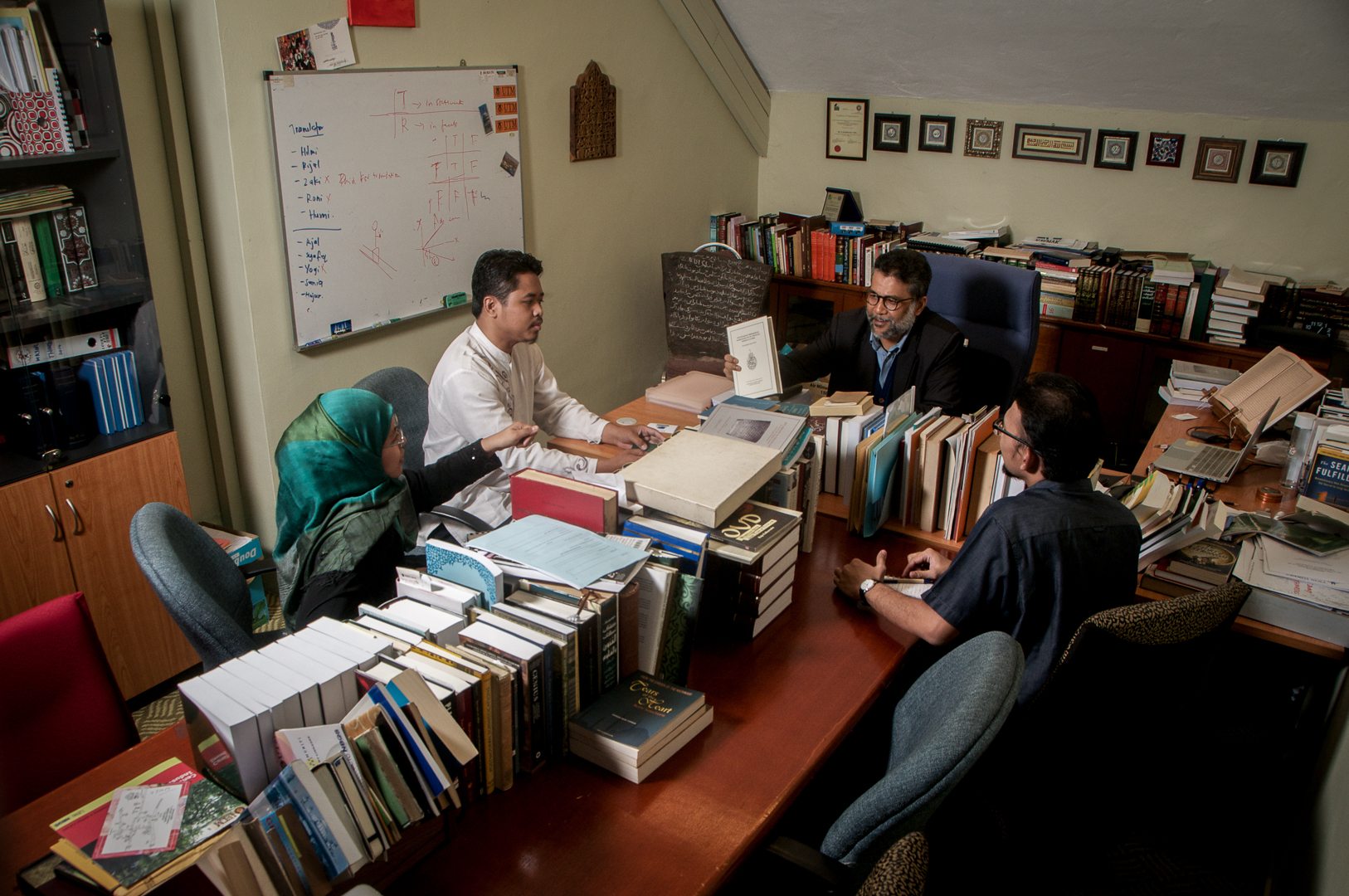
Since the concept of ‘faculty’ (quwwah) refers to a living being in whom the attribute of ‘knowledge’ subsists, and this knowledge is the governing principle of his thought and action, the university must have been conceived in emulation of the general structure, in form, function and purpose of man. It was meant to be a microcosmic representation of man –indeed, of the Universal Man (al-Insān al-Kullī).
Nilai mementingkan ilmu sebagai kebaikan utama, sumber segala kebaikan (yakni jika disertakan dengan kehendak gigih dan niat ikhlas) telah melahirkan sikap memberatkan pendidikan sebagai kaedah utama. Bagi diri dan masyarakat berbudaya ilmu, tujuan utama pendidikan bukanlah untuk mendapatkan pekerjaan bergaji lumayan atau melahirkan tenaga kerja cekap tetapi untuk menanam sikap memuliakan ilmu, menuntutnya dan terus menghayatinya seumur hidup.
Postgraduate Programs
CASIS offers two research programmes: Master of Philosophy in Islamic Civilisation, and Doctor of Philosophy in Islamic Civilisation. Both programmes are research-based, which means students are required to produce a thesis reflecting an academic work worthy of such degrees.
Program Structure
The Master and Doctoral Program offered by CASIS are a Research only by definition. But to ensure our students to follow and understand the philosophy of education promoted by CASIS, we provide pre-requisite coursework throughout the study. Students are required to take some courses with the HW (check the list of courses) status with the intention to complete and strengthen some fundamental understandings in order to ensure success in their research.
To find out more about our centre, please download our new brochure here.
Current Activities

RZS-CASIS Short Course: “Ideas and Principles in Islamic Economic Thought”
RZS-CASIS Short Courses: Islamic Economics “Ideas and Principles in Islamic Economic Thought” by Associate Professor Dr. Ugi Suharto 2 Days Course: 16th and 23rd August 2020 (Sundays) 4 hours sessions in total [8.30pm-10.30pm, GMT +8 (MYT)] Courses...
“THE IMPORTANCE OF WORLDVIEW”
Worldviews establish one’s outlook on the world; hence, there is not one person—even the people of the past—that lacks it. Prof. Wan illustrates this by mentioning the 1974 discovery of the Terracotta Army—all 8,000 of the generals, soldiers, horses and foodstuffs, buried together with Qin Shi Huang, the first emperor of China. In the emperor’s worldview, the afterlife is yet another field of battle; not knowing what he’d face, he had devoted immense time and resources into preparing for his departure, as represented by the numerous terracotta figures.
No Results Found
The page you requested could not be found. Try refining your search, or use the navigation above to locate the post.


